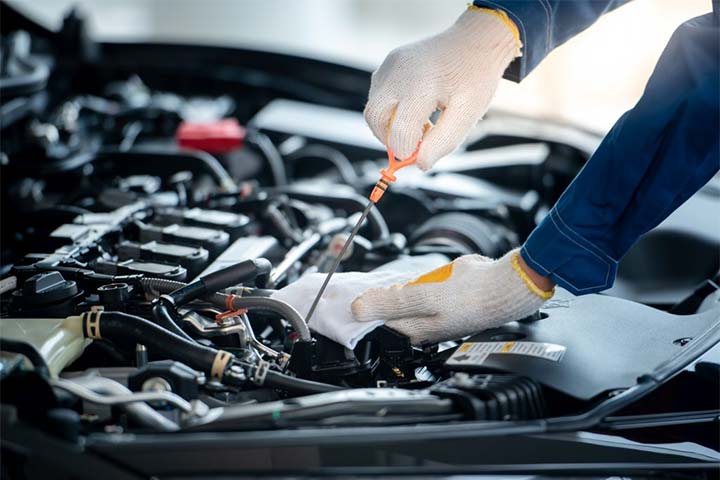BMW vehicles are renowned for their performance, reliability, and luxury. However, like all cars, they can develop issues over time—one of the most common being transmission problems. A failing transmission can significantly affect your driving experience, but understanding these issues and knowing how to address them can help you maintain your BMW’s performance. In this blog, we will explore the most common BMW transmission problems, how to fix them, and how routine BMW repair and maintenance can help prevent issues from worsening.
Common BMW Transmission Problems
Slipping Transmission
A slipping transmission is one of the most common BMW transmission problems. When your BMW’s transmission slips, it may struggle to shift gears or unexpectedly shift out of gear while driving. This issue often arises due to low transmission fluid or worn-out components like the clutch or bands. If you experience this issue, it’s crucial to get professional BMW repair services to prevent further damage. Regular fluid checks and timely repairs can help avoid a complete transmission failure.
Hard Shifting
Hard shifting occurs when your BMW’s transmission is slow or rough when changing gears. This could be due to several factors, such as faulty sensors, transmission control module issues, or contaminated fluid. Hard shifting can cause damage to internal components if left unchecked. BMW repair services can identify the cause of the problem and restore your vehicle’s smooth shifting ability. Ensuring timely diagnostics and fixes can prevent further issues and improve your BMW’s driving experience.
Delayed or No Shifting
Delayed or no shifting is another issue that BMW owners might face, particularly when the transmission struggles to switch between gears. This problem can result from low fluid levels, a failing torque converter, or electrical malfunctions. If you notice delayed gear shifts or no shifting at all, it’s essential to seek BMW repair services right away. A professional mechanic can inspect the system, address the underlying issue, and restore proper shifting functionality.
Warning Lights
Most BMWs are equipped with various warning lights, including those indicating transmission problems. A transmission overheating light or malfunction warning can signal serious issues, such as fluid loss, overheating, or internal mechanical failure. If you see any of these warning lights illuminated, immediate BMW repair is essential to avoid further damage. A qualified technician will be able to perform diagnostic tests and resolve any underlying transmission issues.
How to Fix BMW Transmission Problems
Regular Maintenance and Fluid Checks
One of the best ways to prevent BMW transmission problems is through regular maintenance, including fluid checks and changes. Low or contaminated transmission fluid is often the root cause of many transmission issues. To avoid major repairs, schedule routine fluid checks and maintenance with your trusted BMW repair specialist. Staying on top of fluid levels and quality ensures your transmission operates smoothly and lasts longer.
Replacing Faulty Parts
Transmission issues in BMWs can sometimes be traced to specific faulty parts, such as worn-out bands, clutches, or seals. If you suspect that a part is causing your transmission problems, it’s essential to have it replaced as soon as possible to avoid further damage. A professional BMW repair shop will be able to identify and replace the defective components. They’ll use high-quality parts to restore your transmission’s performance and reliability.
Software Updates and Reprogramming
BMW vehicles rely heavily on software to control transmission performance. Outdated software can cause transmission-related issues such as hard shifting or delayed shifting. Fortunately, BMW repair specialists can update or reprogram the transmission control software to ensure optimal performance. Keeping your vehicle’s software up to date is crucial in maintaining smooth and responsive shifting.
Torque Converter Repair or Replacement
The torque converter plays a vital role in your BMW’s transmission system. If it fails, you may experience issues like slipping or delayed shifts. If a torque converter problem is detected, repairing or replacing it as soon as possible is crucial to avoid further damage to the transmission. A qualified BMW repair technician can assess and fix the issue, ensuring your vehicle returns to peak performance.
Professional Diagnostic Services
When it comes to fixing BMW transmission problems, professional diagnostics are key. A skilled BMW repair expert can perform a detailed inspection to pinpoint the exact cause of the issue. Diagnostic tools can detect everything from fluid leaks to electrical malfunctions. Once the problem is identified, the technician can offer a comprehensive solution that will address the issue effectively and prevent future complications.
Preventing BMW Transmission Problems
Routine Inspections and Early Detection
Routine inspections are crucial for detecting BMW transmission problems early. By scheduling regular checkups, you ensure that potential issues are caught before they become serious problems. A trained BMW repair technician can identify even the smallest transmission issues, such as fluid leaks or minor faults, and fix them before they lead to costly repairs.
Using OEM Parts
Using Original Equipment Manufacturer (OEM) parts for repairs is essential when maintaining the integrity of your BMW’s transmission. OEM parts are designed to fit perfectly and work efficiently with your vehicle’s systems, ensuring long-term reliability. When choosing a BMW repair service, ensure that they use OEM parts for all transmission-related repairs to maintain your car’s performance and value.
Driving Habits and Transmission Longevity
Your driving habits can have a significant impact on the longevity of your BMW’s transmission. Avoiding harsh accelerations, excessive idling, and improper gear shifts can help protect your transmission from unnecessary wear and tear. Additionally, sticking to regular service schedules will keep your vehicle in top condition. With mindful driving and regular BMW repair, you can prolong the life of your transmission and ensure your BMW performs well for years to come.
Takeaway
BMW transmission problems can seem daunting, but with the right knowledge and timely intervention, they can be resolved efficiently. Regular maintenance, fluid checks, and timely repairs are essential to keeping your transmission in optimal condition. If you notice any signs of transmission issues, don’t hesitate to seek professional BMW repair services. By doing so, you ensure your BMW remains a high-performing and reliable vehicle, giving you a smooth and enjoyable driving experience for the long term.
FAQs
What are the signs of a failing BMW transmission? Signs include slipping gears, hard shifting, delayed shifting, or warning lights. If you experience these, it’s important to seek BMW repair immediately.
How often should I change the transmission fluid in my BMW? Transmission fluid should generally be changed every 30,000 to 60,000 miles, depending on your model and driving conditions. Regular maintenance will help prevent transmission issues and costly BMW repairs.
Can I drive my BMW with a slipping transmission? While it’s possible, it’s not recommended. Driving with a slipping transmission can cause further damage, so seek BMW repair as soon as possible.
How much does it cost to repair a BMW transmission? The cost varies depending on the extent of the damage. A professional BMW repair shop can provide an estimate after diagnosing the issue.
Is it worth fixing a BMW transmission, or should I replace it? If caught early, repairing the transmission is often a more cost-effective solution. Consult with a BMW repair expert to determine the best course of action.











